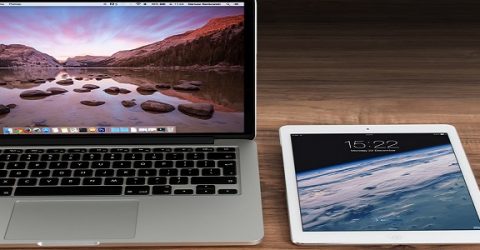Does home broadband matter anymore?

According to some experts, by 2025 more than 72 per cent of internet users will rely solely on their smartphone to get online.
Of course, much of that new mobile traffic will come from developing nations, where owning a PC or getting home broadband may not be an option for most.
But even in the UK, where many of us have both fixed home broadband and mobile connections, we rely heavily on mobile internet.
A study by Ofcom recently showed that 78 per cent of us have a smartphone. That figure rises to 95 per cent among those aged 16–24.
As a nation, we check our phones every 12 minutes and many of us claim to need (and expect) an internet connection wherever we go.
Those facts alone mean that home broadband is no longer enough for most of us.
Yet the fact that their smartphone is the device most UK residents would miss the most tells us even more.
Because smartphone ownership has rocketed since 2008 and in the same period, PC ownership has dropped to a mere 28 per cent.
Does this mean we are all about to ditch home broadband and go completely mobile?
Home broadband isn’t just for computers
Up to a point, UK consumers are already going more mobile, with the average person spending 2 hours a day surfing the net on their phone.
The vast majority of us now use mobile internet regularly, and most of that is via smartphones.
The arrival of 5G has expanded the potential of smartphone use. When coverage is complete, mobile access will doubtlessly grow even more.
Yet meanwhile, there’s another revolution going on at home.
The Internet of Things (IoT) is expanding daily, and UK homes are one of the biggest growth areas.
Nearly a quarter of us now have a smart assistant like Alexa or Amazon Echo, 12 per cent have a smart heating device and 11 per cent have smart lighting.
That’s already a lot of extra traffic for your average home broadband connection to handle, but it’s just the tip of the iceberg.
Surveys suggest that many people who don’t currently own a smart household device have plans to buy one or more in the near future.
Technology is constantly progressing and creating new smart domestic items for us all to covet.
And of course, many of us currently link our smartphone to the WiFi when we get home anyway.
So there will be plenty for the home broadband connection to do for a quite a while yet, although our usage profiles may change.
Even smartphones have drawbacks
In 2018, mobiles or smartphones were the devices most often used to access the internet. So as a nation, the UK has definitely gone mobile.
But we are also more wary of our mobile connections than we are of our home broadband.
With over a quarter of consumers not having installed phone-specific security software, many use their phones for limited activities and refuse access to personal data when using them.
When it comes to sharing data, such as filling in job applications or other paperwork, we still favour larger devices and our own WiFi.
With the launch of 5G, there has been talk of mobile internet replacing fixed connections, even for domestic use.
And contracts are beginning to appear that make this feasible. But the UK is some way off full mobile coverage, let alone total 5G.
It’s increasingly easy to imagine a time when hefty desktop computers are a thing of the past and most people go online with smarter, sleeker tablets or smart devices.
But will we say a similar goodbye to the fixed home broadband connection?
Not for some time, if at all.






